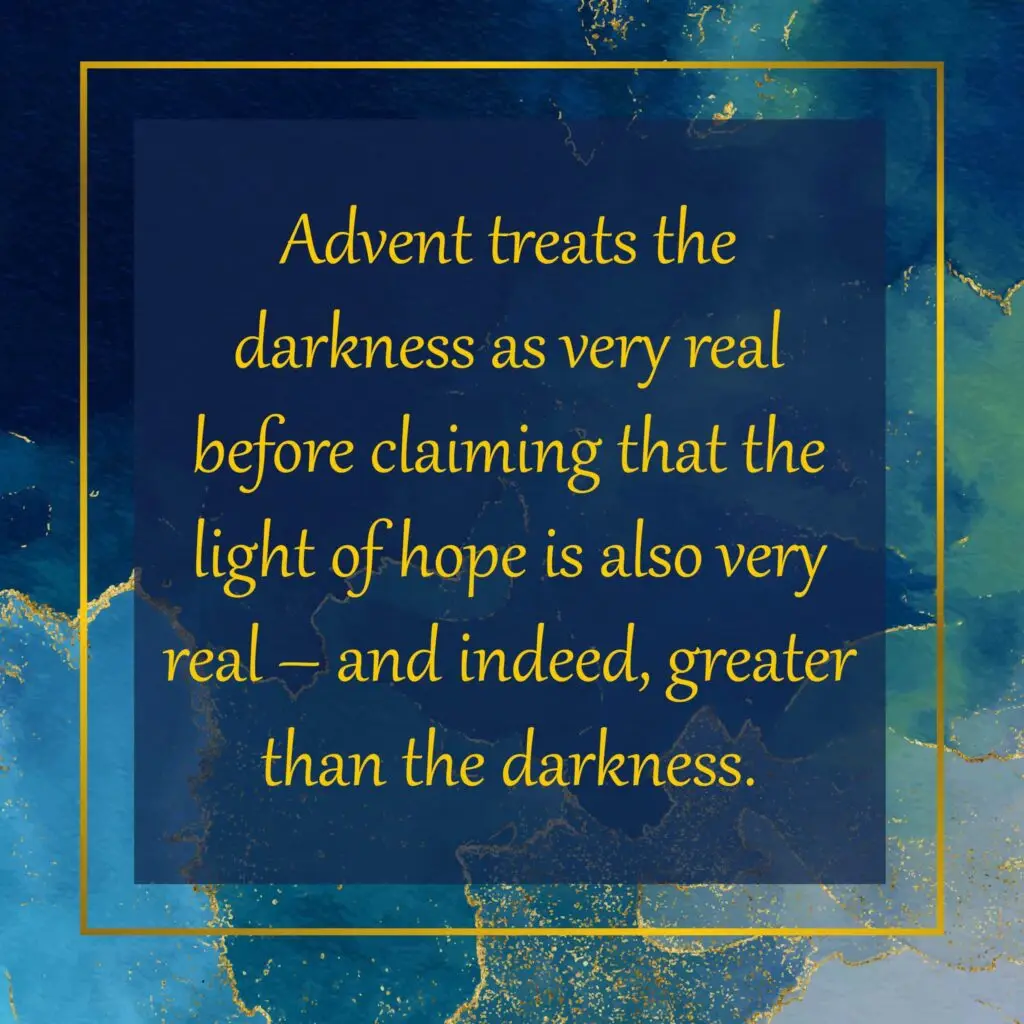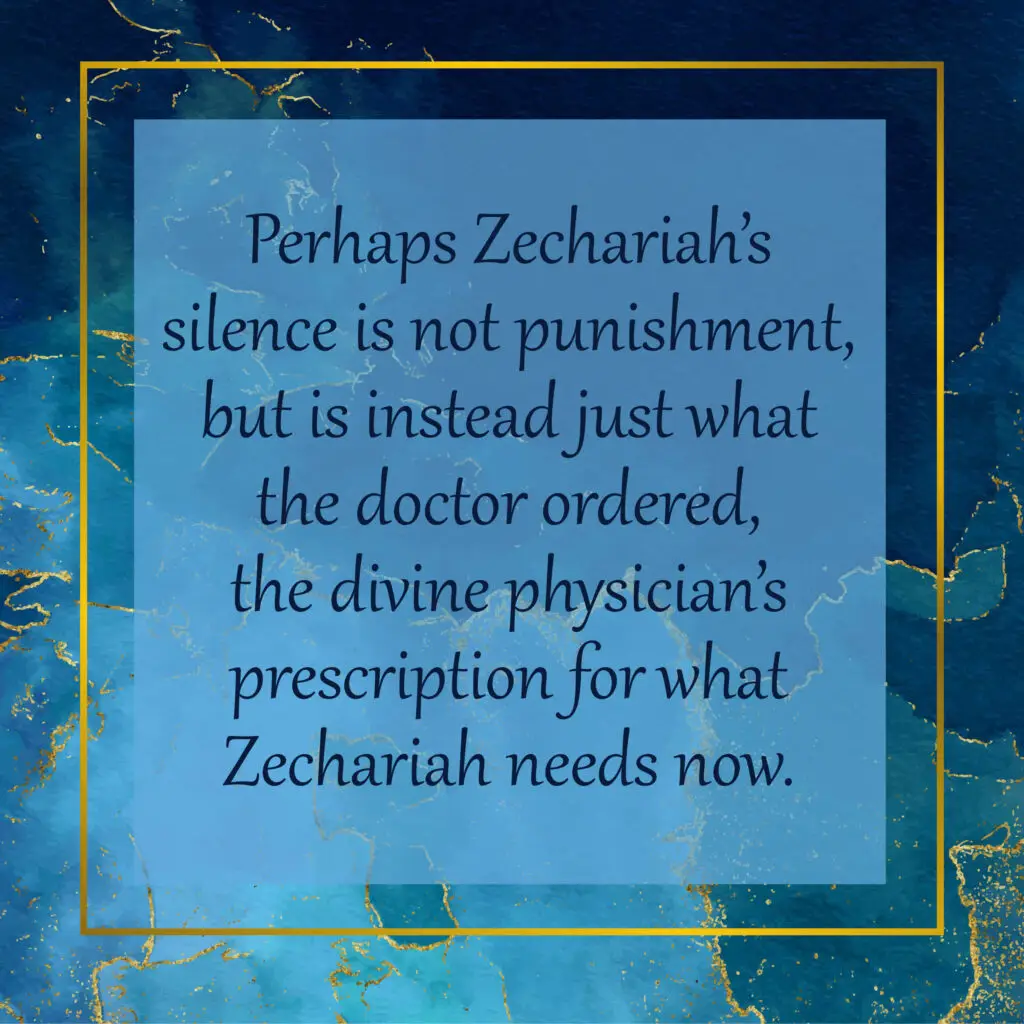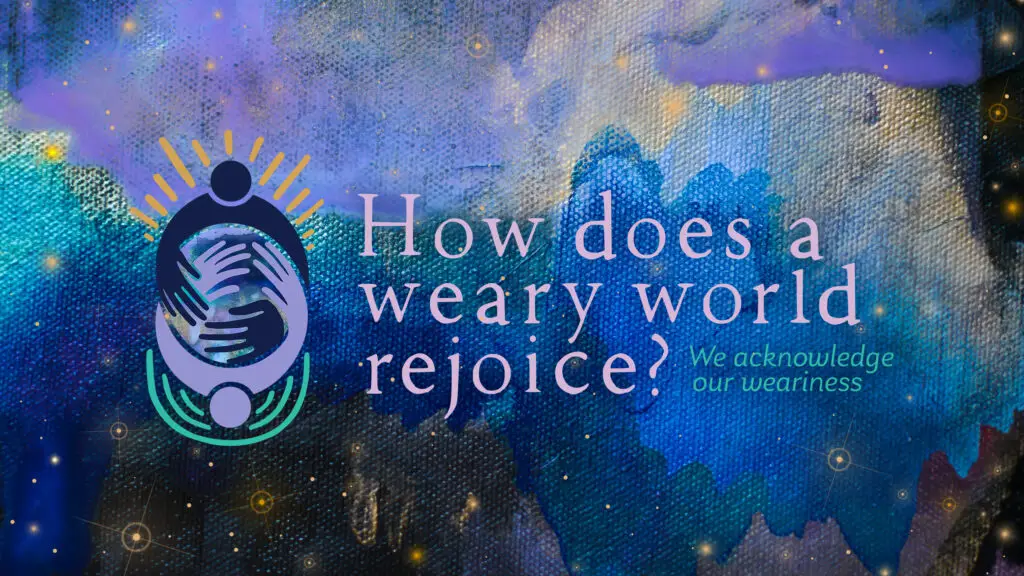Someone passed on a quote to me this week about being an adult: “Being an adult is pretty easy. You just feel tired all the time, and tell people about how tired you are, and they tell you how tired they are.” Do you ever feel that way?
The poet William Wordsworth once wrote, “the world is too much with us; late and soon, getting and spending…we are out of tune.” Does that describe your life, or the life of someone close to you, these days?
Do you feel like more than ever you need an extra dose of Christmas lights and Christmas carols, like Mame in the Broadway musical who sang, “haul out the holly, put up the tree before my spirit falls again, fill up the stocking, I may be rushing things, but deck the halls again now. For we need a little Christmas, right this very minute…Need a little Christmas now!”
We may need a little Christmas right this very minute, and, in fact, our Christmas tree went up last weekend. But we will be making a mistake if we hurry too fast to Bethlehem and the manger. And, we will be making a mistake if we think the antidote for any weariness we are feeling is simply to ignore it, or cover it up with jolly cheer. Luke certainly wants us to take our time in going to Bethlehem and the manger: he gives us all of chapter 1 and its 80 verses before the baby arrives in chapter 2. And, there is reason to not only read the gospel but also to read a portion of today’s psalm, Psalm 80, a psalm of lament.
But let us begin with Luke – and his story of Zechariah. We will spend more time with Elizabeth on a later Sunday this Advent. Zechariah is a country priest, one in a great line of priests. By Zechariah’s time, there are so many priests that not all would get a turn offering prayers in the Temple in Jerusalem. But Zechariah has gotten lucky – his lot has been drawn – and he has traveled to the Temple in Jerusalem to take a turn offering prayers and sacrifices on behalf of the people.
Zechariah is lucky to have had his lot chosen, but he has not been lucky in life. Elizabeth and he have no children, and have no prospect of having any, since “both were getting on in years,” Luke tells us. Being childless in first century Palestine was particularly difficult, not just because of the loss of the experience of being a parent and having a legacy, but also because children were their social security and Medicare, the ones parents would depend on to take care of them in their old age.
But even in modern societies with more governmental safety nets in old age, infertility can cause terrible heartache. All of the waiting – with no end in sight. All of the prayers, seemingly unanswered. It is one thing to impatiently wait on something that you know will take place eventually, such as when a child waits for Christmas. But it is another thing to wait for something that is not certain to happen, that as more time passes, seems less and less likely to happen.

I wonder if you, or someone you love, knows what it feels like to be Zechariah. I wonder if there is something you are waiting for that still seems far off in the distance, if the possibility is even still alive: the yearning for a child; the yearning for a relationship and partner; the yearning for a cure; the yearning for a loved one to escape the power that addiction has over them; the yearning that there be no more parents burying children because of the effects of war or gun violence. I wonder if you are weary with waiting, weary with the burdens you are shouldering, weary with the world.
Sometimes when we are living with disappointment and unanswered prayers, we may wonder if the problem is us – if we have done something wrong, aren’t good enough, or don’t have enough faith. Others may think that as well about us – which when you think of it – is a cruel thing, to blame the victim. “Live right and life will go right,” – how many of us have heard others, even other Christians, say something like that? How many times have we believed that ourselves?
In any case, Luke knocks the legs out from under that argument when it comes to Zechariah and Elizabeth. They have lived impeccable lives, Luke tells us. Sometimes live right and life will go right. But sometimes it doesn’t – which shouldn’t be a surprise for us who have a cross at the front of our sanctuary.
As Enuma Okoro writes in her book of Advent meditations, “During Advent we have permission to sit with Zechariah…for a while before jumping too quickly into Angel Gabriel’s visit. Zechariah…knows something …about the difficulty of maintaining faith and hope.” Yet there he is, serving faithfully in the Temple. “We know from the witness of the Psalms that acknowledging one’s desires and one’s sorrows before God” was a key part of Jewish prayer and spiritual life. So, if Zechariah was able to hold on to his faith despite his sorrow and disappointment, surely the Psalms played an important part.1
Psalm 80 sounds like it could have been written by Zechariah himself: “O Lord God of hosts, how long will you be angry with your people’s prayers? You have fed them with the bread of tears, and given them tears to drink in full measure. You make us the scorn of our neighbors.” Psalms of lament like Psalm 80 far outnumber the psalms of thanksgiving. And these psalms can be brutally honest, as they name pain, disappointment, and even anger, with God.
I have talked with a lot of Christians who have a hard time with the Psalms because the psalms can seem so negative, so angry – almost too honest. But for many people experiencing sorrow, disappointments, or rage, the Psalms have been a great gift because the psalmists’ words express what they are feeling. And in giving voice to those feelings before God, the Psalms can offer a way forward, a way out of despair.

What Luke 1 and Psalm 80 remind us is that while Advent is a season of moving towards the light, Advent can also be a season of acknowledging the darkness of our struggles, our unfulfilled longings, and our weariness. Advent treats the darkness as very real before claiming that the light of hope is also very real – and indeed, greater than the darkness. How does a weary world rejoice? First by acknowledging our weariness.
Like the psalmist, Zechariah can name his pain; he can acknowledge his weariness and sadness. But he doesn’t give up on God; he still travels from his home in the hills to Jerusalem. He still takes on his holy duty in the Temple. And then God shows up – in the form of a messenger, the angel Gabriel.
Gabriel has a message for Zechariah when it is just the two of them in the innermost court of the Temple – and it is a message that rocks Zechariah’s world. He is to have a son, but not just any son. He “will be great in the sight of the Lord,” Gabriel declares. “Even before his birth he will be filled with the Holy Spirit.” He will be one who prepares the way for the Messiah.

Zechariah is shocked – even incredulous. With good reason. He and Elizabeth are old now – past the normal childbearing years. And then there is the news that this son is to be special, so special that he will probably shatter Zechariahs’ quiet little life. Perhaps Zechariah has a sense of foreboding in hearing Gabriel’s message because surely it will be dangerous for any forerunner of the Messiah to go public in a land dominated by the cruel Roman Empire and its vassal, the ruthless King Herod.
In light of all that, can you blame Zechariah for asking Gabriel for a sign? “How will I know that this is so?” he asks Gabriel. Gabriel seems to bristle at the request. He immediately announces that since Zechariah hasn’t believed, he will become mute, unable to speak, “until the day these things occur.” And that is exactly what happens: Zechariah will not speak again until after his son is born.
Is the silence a punishment for Zechariah for questioning Gabriel, and therefore questioning God? If that is the case, then why isn’t the psalmist punished because Psalm 80 certainly questions God. Perhaps Zechariah’s silence is not punishment, but is instead just what the doctor ordered, the divine physician’s prescription for what Zechariah needs now. After all, there is a lot here for Zechariah to absorb.
Sometimes we need to stop talking and keep silence, so that we can watch and listen. Sometimes perhaps we just need to stop running around and shut up – so we can step back pay attention, and reflect on what God is saying and doing in our lives. Sometimes the last thing we need is to be distracted by our frenetic activities and our glib words. Sometimes the last thing the world needs is more words from us.
As the Franciscan spiritual writer, Father Richard Rohr, has written, “silence is the ability to trust that God is acting, teaching, and using me – even before I perform or after my seeming failures. Silence is the necessary space around things that allows them to develop and flourish without my pushing.” Silence reminds Zechariah that to be used by God, he does not need to do anything extraordinary; it is God and Elizabeth who will be doing the hard work, after all. What he needs to do is pay attention. He needs, as the recovery movement puts it, to let go, and let God.
How does a weary world rejoice? By recognizing that joy is not something we can manufacture by positive thinking, or white-knuckle our way by our actions, as Kate Bowler notes in the short You Tube video that some of us saw in the Advent small groups.2 Instead, joy comes from beyond ourselves. Joy is a gift from God, the gift that can surprise us in the midst of our wearying everyday routines, as Gabriel surprises Zechariah here in Luke 1. Joy is the gift from God that is far deeper and more lasting than the happiness that comes from having everything go our way.
While we all may need a little Christmas now, we don’t want to skip over Advent and this journey to Bethlehem. We all need time to prepare for Jesus’ coming.
Perhaps we need to take time to acknowledge our weariness, our own pain and disappointments with God, like the psalmist and Zechariah. Perhaps we need time to share our needs and longings with others, to let them pray for us, as we, in turn, pray for them.
Perhaps we just need to do our duties, like Zechariah, keeping up with our daily tasks for God, for others, and for ourselves, but with our eyes and hearts wide open, trusting that God will show up in the ordinary round of our days.
Perhaps we need some time for silence, for pondering what God has to say to us and listening while we wait.
The church fathers and mothers gave us a gift when they started marking the season of Advent: the gift of time set apart, time to be quiet. Because we don’t have to wait until Christ to open God’s gifts for us. We don’t have to wait until Christmas to discover that God has entered, and continues to enter, this weary world.
175 years ago, Edmund Sears was wrestling with despair. He was struggling with his ministry and he was struggling with wars in Europe and on the US border with Mexico. In the midst of his weariness, he penned these words for the Christmas carol, “It Came Upon a Midnight Clear,” words worth remembering this Advent:
“O ye, beneath life’s crushing load, whose forms are bending low, who toil all along the climbing way with painful steps and slow, look now for glad and golden hours come swiftly on the wing. O rest beside the weary road and hear the angels sing.”
- Enuma Okoro, Silence and Other Surprising Invitations of Advent (Nashville: Upper Room Books, 2012), 18. ↩︎
- Kate Bowler, “Choose joy.” – YouTube. ↩︎

